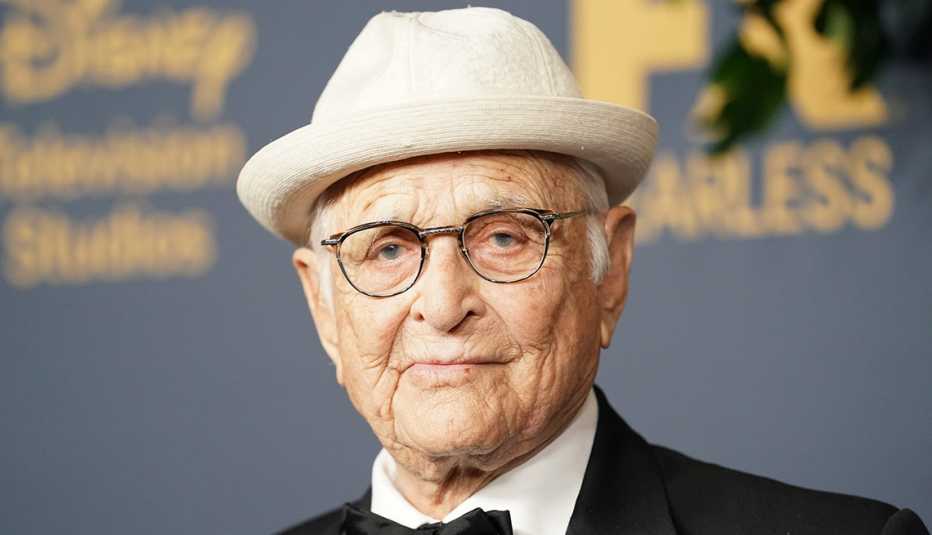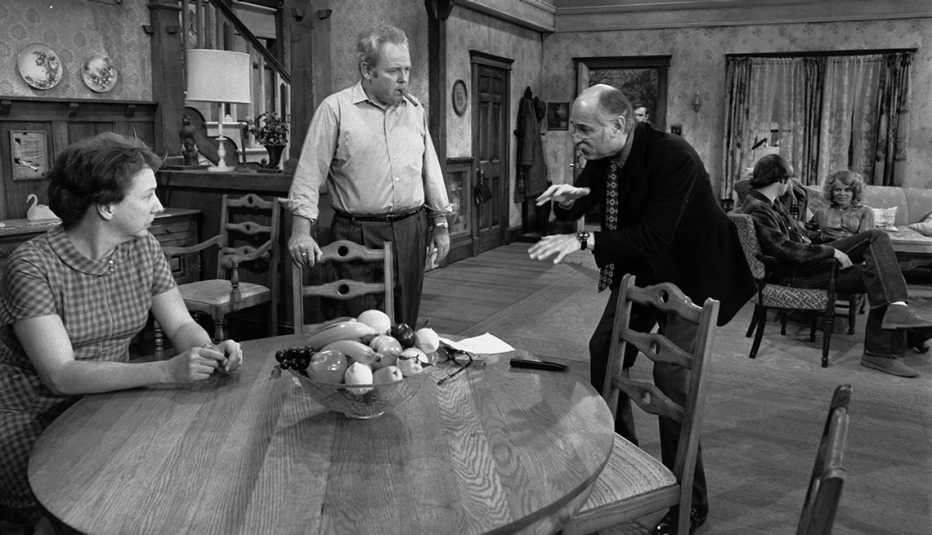AARP Hearing Center


Growing up Jewish in 1930s America, writer-producer-director Norman Lear felt like an outsider. Struggling with the anti-Semitism he saw all around him in New Haven, Connecticut, and heard on his crystal radio set in the broadcasts of Father Charles Coughlin, he identified with marginalized people, especially African Americans. And, at 9, he chafed at living with cousins when his father, a man he called “a rascal,” went to prison for selling fake bonds.
When Lear, who died Tuesday of natural causes at age 101, was creating several groundbreaking television sitcoms of the ’70s that tackled social issues such as racism, bigotry, abortion, rape, homophobia and the Vietnam War, he drew in part on his dysfunctional home life, especially for All in the Family and the seminal role of Archie Bunker, the working-class and eternally prejudiced patriarch, played by Carroll O’Connor.
“Well, that’s where it all came from, you know? We all scrape the barrels of our own experience,” Lear said on NPR’s “All Things Considered.”
Lear’s family released a statement on his death to Variety: “Norman lived a life of creativity, tenacity, and empathy. He deeply loved our country and spent a lifetime helping to preserve its founding ideals of justice and equality for all. Knowing and loving him has been the greatest of gifts. We ask for your understanding as we mourn privately in celebration of this remarkable human being.”
All in the Family barged into television history in 1971, inspiring political and social discourse in the American living room as no show before it had. “It was able to deal with controversial subjects and potentially offensive language by putting them in the mouths of characters who engendered empathy even in the face of disagreement or disapproval,” observed David R. Shumway, a professor of literary and cultural studies at Carnegie Mellon University, to the Hollwood Reporter.
The show became the first to hug the top spot in the Nielsen ratings for five straight years. Over its nine seasons, it won 22 of its 57 Emmy nominations.
Yet predictably, there were critics. Religious leader Jerry Falwell saw the show as bringing “filth and sexual perversion” into the home.







































































More From AARP
Norman Lear: Through the Years
Remembering the pioneering TV producer's greatest hitsThe TV Shows That Changed America
Memorable programs that continue to resonate todayRecommended for You